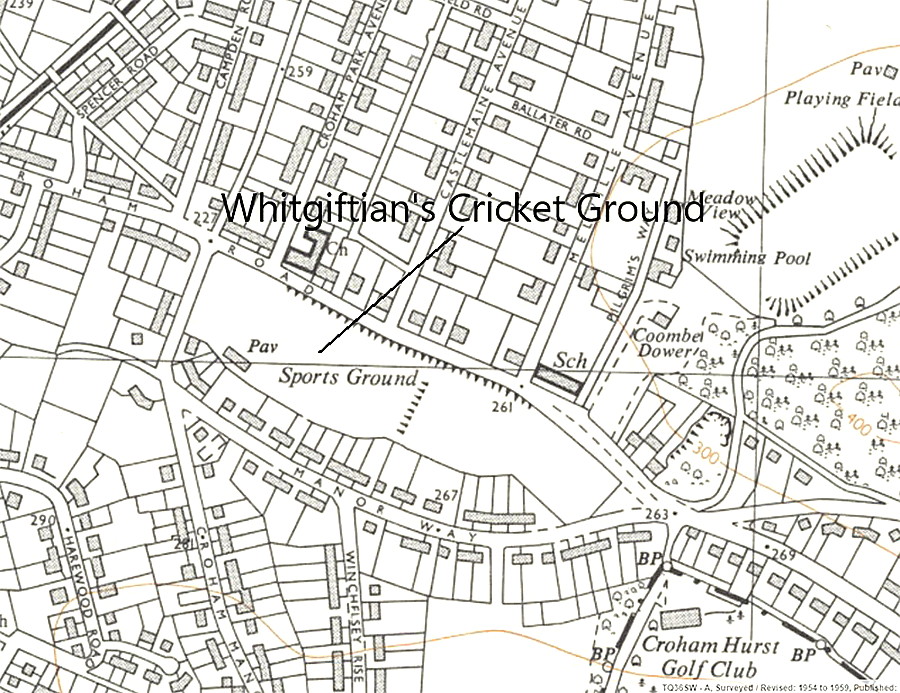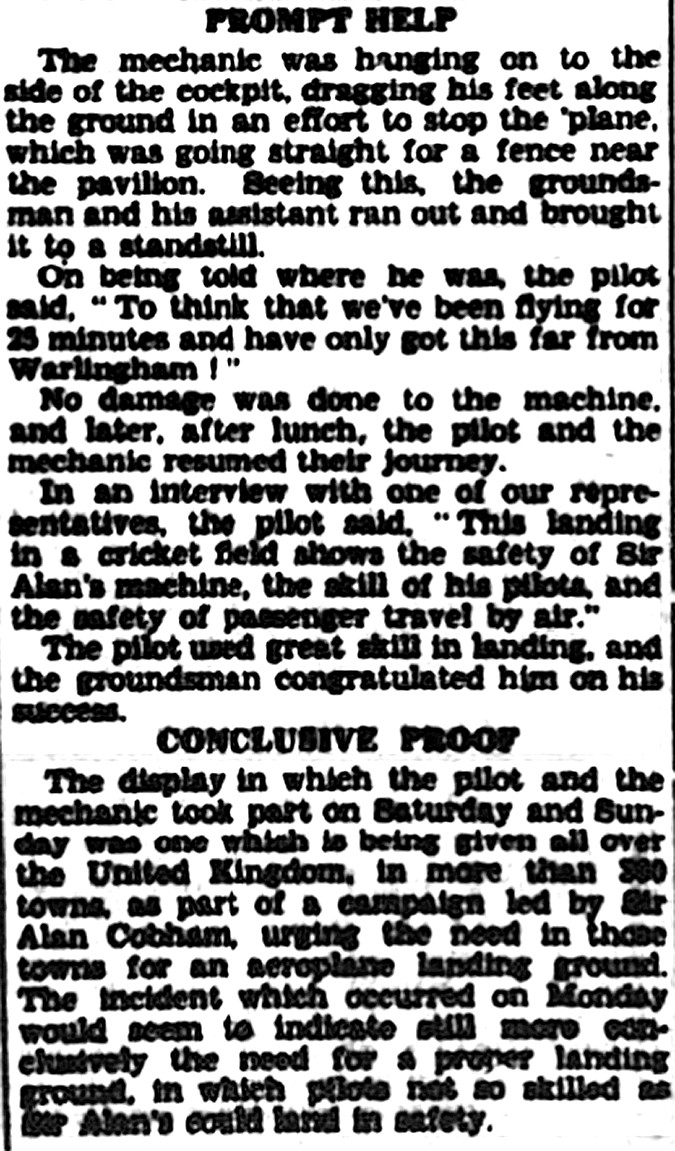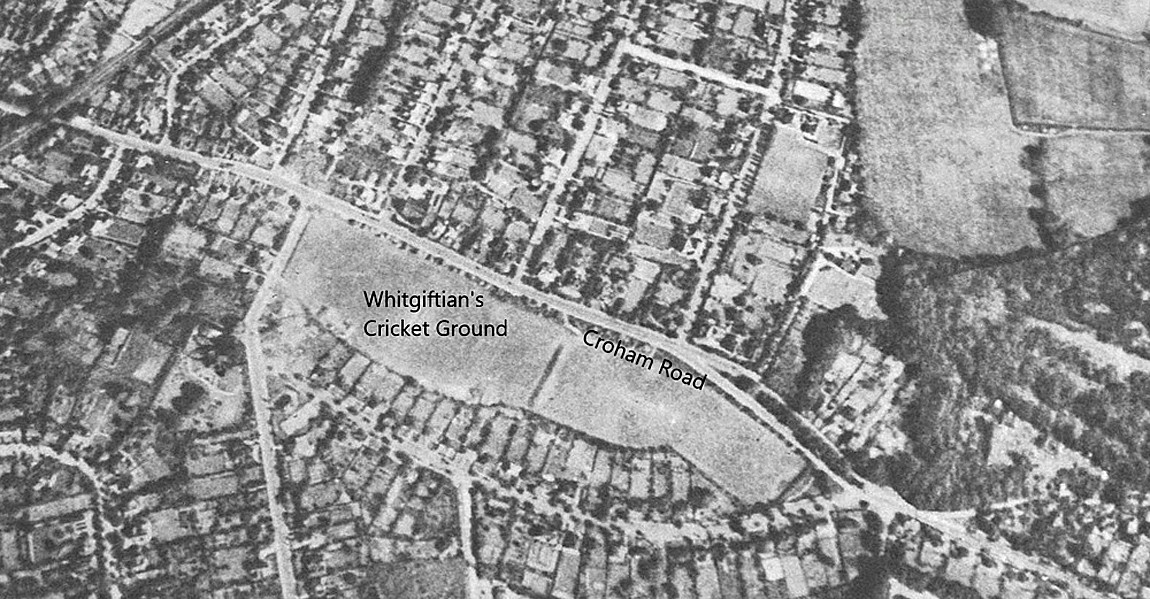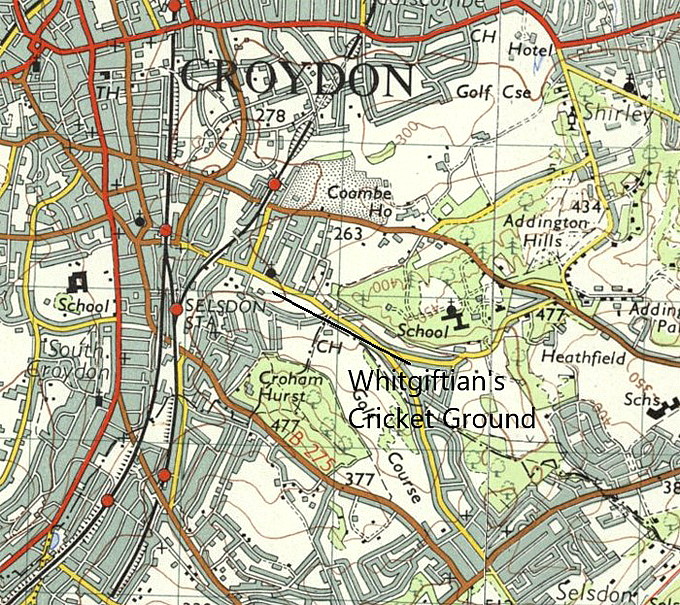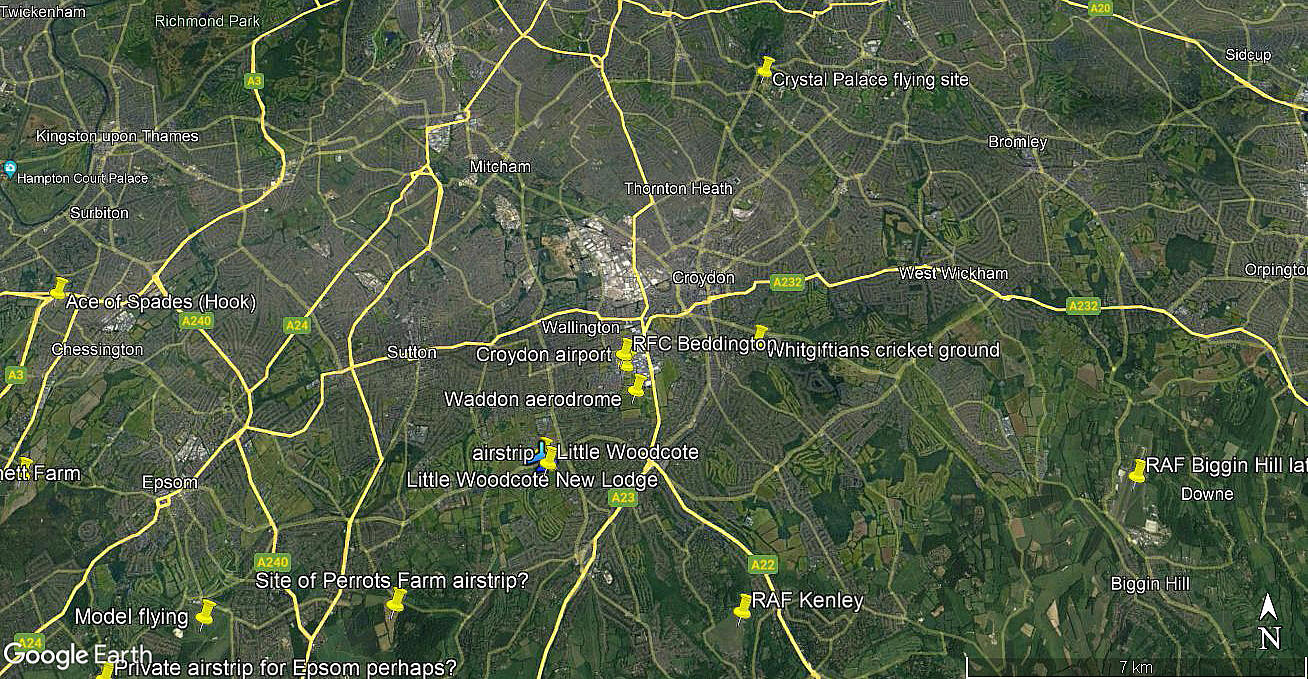Whitgiftians Cricket Field
WHITGIFTIANS CRICKET FIELD: Precautionary landing site
Note: No 'Guide' to British flying sites can ignore mentioning some examples of aircraft making forced landings, and indeed, as in this case, a precautionary landing site. We have Mike Holder, a great friend of this 'Guide' to thank for finding this example. All the better of course for having a newspaper report of the event.
A MICHAEL T HOLDER GALLERY
Note: The newspaper article was published in the Croydon Times on the 3rd May 1933
Note: The 8th item, an area view, was added from my Google Earth © based database
Location: Just SE of Croydon town centre
Period of operation: 1st May 1933
NOTES: It appears that after performing at, HAMSEY GREEN AERODROME, WARLINGHAM on the 29th and 30th April, 1933. the next venue was FARINGDON in Berkshire. We do not know how the other crews coped, but the pilot of G-ABUB, Mr Alfred Wright, together with his engineer Mr Jackie Allan, soon became lost over "ground mist". Without much doubt this was fog. Low level ground mist easily reveals ground features when seen from above.
AN INTERESTING FEATURE
The de Havilland DH60X Moth, G-ABUB, had been acquired by Sir Alan Cobham for this Tour which was split into two Tours, G-ABUB taking part in the No.1 Tour. This was then a very famous aeroplane, it being used by Jim Mollison to beat the Australia to England record in 1931, taking just 8 days and 19 hours, before landing at Pevensey on the south coast in Sussex.
But, when he landed in England it was registered in Australia as VH-UFT.
We'd love to hear from you, so please scroll down to leave a comment!
Leave a comment ...
Copyright (c) UK Airfield Guide















